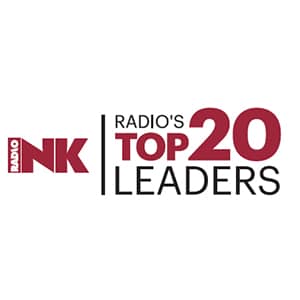
By Ed Ryan, Editor-in-Chief, Radio Ink Magazine
It all started with online voting. Our readers, the foot soldiers of the radio industry, chimed in with the managers and owners they love working for, the ones they learn the most from, the people that move this industry forward. The one rule we had was that these 20 leaders could not have been on Radio Ink’s 40 Most Powerful People in Radio list in 2016. It was then up to the Radio Ink team to analyze the votes, interview everyone on the list and rank the final 20. What follows is, with a ton of input from you, the Best Leaders in Radio for 2017. The best news of all is that this also serves as a leadership manual for this industry as each and everyone who made the list was very forthcoming on how to become a great leader.
One of the many features Radio Ink has become known for is its world-famous lists — like the 40 Most Powerful People in Radio, the Most Influential Women in Radio, and the Best Program Directors in America, just to name a few. In 2017, for the first time in many years, we are launching a brand-new list. And we let you, the readers, decide who deserves to be on it.
Voting took place at radioink.com over three weeks, and you broke the Internet (well, maybe you put a dent in its side panel). Thousands of votes were cast, and thousands of comments were made about those you nominated. We ranked and updated the standings every day, which brought a massive amount of traffic to our website and led to even more voting.
Who are Radio’s Top 20 Leaders? They are the people in the radio industry whose employees love working for them, and they are the people everyone wants to work for. They may not always be the executives getting all the daily trade press recognition, but you can be sure they are behind the scenes, making this industry tick.
You know them. Many of you are working for them now. They are the people who know how to motivate their teams to success. They are winning at sales, programming, and management. Have they even climbed a tower or two? Probably!
They are relentless in what they do, and they do not fail. They hire the best people, give them the tools and training to succeed, then get out of their way. They are developing radio’s next layer of leaders. They are the most positive people in radio, and still excited to be in the industry they love. They are the people who take the time to mentor others and have a positive and lasting impact on the careers of their colleagues. They give time back to the radio industry to help it grow.
Our list of Radio’s Top 20 Leaders was created by you, the rank and file, the foot soldiers working the business every day. We set only a few rules before the voting on our website began, then let you have at it. They were: The person must be active in radio today and have at least five years of experience in the industry. Nominations could come from any department of a radio station or cluster. And executives who were on our most recent 40 Most Powerful People in Radio list could not be nominated for this list.
Once the list was decided, we interviewed all 20 leaders, and then turned to the business of helping you. We picked their brains and asked them about leadership, how they achieved their level of success, what advice they have for others, and their opinion on the current leadership in the radio industry today. This issue, in addition to recognizing 20 great people, is one of the strongest training manuals you will come across in your career. Imagine having 20 of radio’s strongest leaders in one room and picking their brains for hours. This issue does that for you. And they were all a joy to interview.
HERE ARE RADIO’S BEST LEADERS FOR 2017.
Mike Tarter offers up a great to-do list if you plan on being a leader in radio today: “Show that you truly care about your people. Encourage them, mentor them. Lead by example. Listen to your people. Value their ideas and opinions. Be passionate about the industry. Always be willing to learn, stay current, and be innovative. Learn as much as you can about the industry. Be passionate about radio. Never stop trying to learn about every aspect of the industry and its advancements.
“Treat everyone with respect, and be honest. Allow your experiences to help you teach and instruct. Let others you lead know that you understand what they are experiencing, and that you can help. Try to make a difference in your company and community. Be involved. Encourage your team, praise them when they do well — and remember, nice matters.
And to accomplish all he’s accomplished so far, Mike says he has always tried to treat people as he’d want to be treated. “I have tried to create trusting relationships with the people I have worked with and for,” he says. “Just trying to emulate the strong leaders I have worked for and have seen. I have had the great fortune to have learned the radio business and leadership from tremendous broadcasters including Nolan Kenner, Ed Henson, Ray Holbrook, and Terry Forcht. In terms of education, I have tried to learn about all aspects of the business — sales, programming, on-air, even IT and engineering. Attending as many training sessions, conventions, and seminars as possible has been extremely valuable. Networking with other broadcasters is also important.”
Ed Henson of Henson Media says of his friend, “Mike is an exceptional leader. No matter the situation, he strives to be supportive and understanding of the people he’s leading, while building on the positive. Mike is quick to help his industry through trade associations on a state and national level. He is just the right person to be president of Forcht Broadcasting.”
As far as leadership, Tarter says there are many strong, visionary leaders in our industry today. “If we continue to focus on our advertisers and listeners and adapt to new innovation and technology,” he says, “the future will be bright. We need more servant leadership in the industry. Radio still reaches 92 percent of Americans each week. We have a powerful message to tell, and we need to continue to do that.”
Nick Martin believes that a leader today has to be a visionary who wants to stay ahead of the curve. “As fast as things change now,” he says, “you have to be focusedand able to adapt on a daily basis. The leaders of today are already thinking well beyond tomorrow and about radio’s role in this multi-platform world we operate in.”
Martin points out that dealing with people certainly has its issues, but ultimately, communication is the key. “We are all professionals when we walk through the door each day, understanding that this is a business and we are here to do a job,” he says. “Treating each person with respect and sharing in the goals and vision for the company regularly are the keys to success. I simply encourage, and expect, each person to be the best that they can be. We are all in this together, and each person has a role in the productivity and success of our products.“I hold myself to the same level of expectation, performance, and accountability that I look for each day from every employee. We regularly provide educational opportunities and training in all departments. By investing in their professional growth, employees see that we are investing in their future as well, establishing stability and longevity in our workforce.”
And if you want to be a leader in radio any time soon, “Think outside the box,” Martin advises. “Where is the next brand extension? How can we develop new revenue streams and be efficient doing it? In our world, it all comes down to growing ratings and revenue. To be a strong leader, youhave to see the big picture and what it takes to accomplish it, and be able to communicate and implement it effectively throughout the organization. Hold yourself accountable and lead by example.”
Martin thinks radio leadership is in a great place today: “The appointment of Commissioner Pai to head the FCC is a great example. I think we finally have someone in place who will be supportive of the issues and challenges we face. There are some really smart people heading up some of the largest broadcast companies working to develop opportunities that will open doors for stations in all market sizes. The NAB, under the leadership of Gordon Smith and John David, continually works to protect our interests in Washington. The work Erica Farber does at the RAB helping drive revenue growth within our industry is incredible. We have leaders at all of our state broadcasting associations working at the local level to provide resources and opportunities, from the smallest of markets to the largest.”
He says his success in radio all started with two great role models, Larry Wilson and Bob Proffitt. “I could see the impact of what a team culture and a bond of trust can do for a company. I like to study successful people and their habits; I read many organizational books and articles and attend seminars in person and online. The Ted videos are particularly outstanding.”
Regarding overall radio leadership today, Mahalick sees it as a mixed bag, but “in the past two years, overall getting better, not worse,” he says. “Hopefully, the team builders will ultimately emerge as the winning leaders of our industry.”
Entercom Communications
Along the way to success, Paxton has done every radio job anyone at Entercom has ever done. “Working in small markets to start my career provided invaluable experience,” he says. “Working my way up, moving and experiencing different cities and cultures, being exposed to lots of very smart people, all helped me be who I am today.”
Paxton tells Radio Ink that he’s gotten people to work so hard for him for so many years because they know he has their back. “If something goes wrong, we don’t panic,” he says. “We fix the problem and move forward. People don’t feel threatened. They have the tools they need to succeed, and they understand there is accountability that comes with that.”
His advice to others hoping to become leaders? “It’s about your people, not about you. Make them the stars. Help them succeed. Learn to do everything your people do. Have empathy — understand why people feel the way they do. Learn different personalities and what makes them tick. This isn’t a cookie-cutter career. Learn what’s important to people, treat them well, and you will be rewarded.”
According to Paxton, radio’s current leadership is looking good. “My counterparts at other companies are extremely strong. The group of CEOs leading our industry — those tasked with industry messaging — are as skilled as ever. I think there are strong GMs and PDs out there in all companies. I think we’re in a good place.”
Curtis Media Group
Curtis tells Radio Ink he feels extremely lucky to have come up through the ranks in radio. “My first break was getting a part-time job as both a salesperson and announcer at age 16,” he says. “I purchased an hour a week on a local radio station, and re-sold the time. So, in effect, I learned from the school of hard knocks. I had to program the hour, sell the ads, write the copy, and collect the money.“I learned early on that clients expected ROI on their investment. I learned that I had to program to the prospective customers of my clients, not to my teenage friends. I learned to write copy that worked, and I learned that not every client always pays their bills. Effectively, my first job was I management, even if it was for just one hour a week.
“The first radio station that I was an owner of was a 500-watt station at 1590 AM in a town of 6,000. There is not a job, other than climbing a tower, that I have not done, mainly because there was no one else to do it. But each of the experiences have collectively given me a background that uniquely positions me to lead my company today.”
Curtis believes that being a strong leader starts with having a positive attitude about change. “I am now in my seventh decade in the broadcasting industry,” he notes, “and there has been constant change. To be a strong leader, a manager needs to know how to adapt to an ever-changing business environment. Being on the forefront is important, but it is equally important to know which end of the knife you are holding. Our advertisers expect ROI on their advertising investments. Our listeners expect quality entertainment and information. Our staff members expect us to provide a good opportunity.
“To lead, one must understand why someone would want to follow Understanding of what is expected by our advertising clients, our listeners, and our staff and management team is a must. Our staff members fully expect management to put them in a position not only to be properly compensated for their work, but also satisfy their personal professional growth. If we achieve those goals, we can claim leadership.”
His advice to others looking to gain that corner office? “Listening skills may be the most underrated skill in leadership. Your clients, your listeners, and your staff members will tell you what they expect. Learn to fulfill their needs. Clients will pay you to solve their problems. Listeners will listen if you provide them with good entertainment and information. And most importantly, your staff members have their own goals and expectations. Keep your ears open, and hear what they expect from you.”
Garcia tells Radio Ink that a strong leader in the ever-changing radio industry of today must have integrity and strategic perspective, think creatively, anticipate change, and continually push for innovation. He’s been able to get people to follow him because he is results-driven. “I try to set an example for my team,” Garcia says. “I make sure to motivate them and emphasize the importance of hard work and perseverance while also maintaining respect and honesty.”
Since early in his life, Garcia has been confronted with personal challenges that have shaped his ability to progressat a personal level and, ultimately, professionally as well. “At the age of 15, my younger brother and I arrived in this country without our parents under a Department of State program sheltering youths from political policies issued by the Cuban government. The program sheltered 13,000 youths until we were able to reunite with our parents. It was administered by the U.S. Catholic Church and known as the Peter Pan Program. My understanding is that it was the second-largest such program, after a similar program protecting Jewish youths from Nazi Germany during WWII.
“It was a transforming experience; we were provided with food, shelter, education, and kindness in a sort of a boarding school environment. I learned from that moment to self-manage my time, resources, and discipline, and an understanding that it was entirely up to me to shape my future. Two years later, I was drafted into the U.S. Army during the Vietnam War, and that further aided in shaping my personal development and introduced me to managing infrastructure, resources, and people. Later, it assisted me professionally, managing work demands while attending evening programs for my BBA from Baruch College and MBA from St. Johns, both in New York City.”
Garcia goes on, “These experiences taught me to observe and learn from my superiors and colleagues — their methods in solving problems, making the correct decisions, and prompt execution. It opened me to new ideas, to listening to constructive criticism and being surrounded by competent, ethical, and hardworking people.”
Garcia’s advice for others who want to be leaders in radio? “Be ethical, lead by example, learn something new every day, and demand excellence.
Galaxy Communications
People want to know that you’re in it with them all the way, according to the Galaxy CEO: “Once they believe that, the ‘impossible’ becomes doable.” Levine says the best advice he can give future leaders is to escape from their comfort zone. “If you are in programming, go on sales calls. If you’re in sales, spend time with the on-air folks and understand exactly what makes them tick. In general, different types of people make up both departments. The more easily you are able to navigate between both worlds, the better leader you will be.”
About current radio leadership, Levine says too many “leaders” have focused only on their own companies for too long, and not on the good of the industry. “Leaders in radio need to care about the health of the entire industry, and not just their own parochial interests,” he says. “I think there’s a rising tide of leadership emerging from many of the smaller companies. With a few notable exceptions, the large companies have failed to be good stewards of our industry. I’m encouraged that with some of the newer and smaller companies being formed, the mantle of leadership in the radio industry will be better over the next 10 years than it has been over the past 10 years.”
JVC Media
Want to be a strong leader in radio today? Caracciolo says you’ll have to be nimble. “You have to be open to change and a great listener with no ego,” he says. “You need passion, confidence, and integrity. But most of all, you need inspiration. There is no such thing as a self-made leader. Leaders aren’t self-made, they are driven by inspiration.
“My inspiration was looking in that window of WSUL-FM on Main Street in Monticello, NY when I was 10 years old. I became fueled by a passion and inspiration for radio. A great radio leader needs to understand every aspect of the radio business, but needs to be smart enough to surround himself with people that are smarter, and listen to them.”
He goes on, “I am the luckiest radio owner in the world. I have a group of co-workers, partners, and private equity that really love the radio business, and they show it every day. How many owners can say that they have partners in debt and equity that are true partners? If you do something you love and you do it with people and partners around you that you like and respect, it really doesn’t seem like work. We have an outlook here at JVC: ‘One Team, One Goal.’ We empower our markets to take ownership in their products and give them the tools to do so. We created a culture of success. Success for one is success for all.”
So just how did Caracciolo put himself in a position to lead people successfully? “I made a lot of mistakes, but I also asked a lot of questions,” he says. “I surround myself with smart, passionate people, and I let them do what they do best. I think of myself as the fireman and the snow plow operator for JVC. I put out the fires, and I clear the way for our team to win. I trust my leadership team to make decisions that are smart, ethical, and good for business. They know I’ve got their back, and they also know that if I ever start talking music, we should all be in another business!”
How does he feel about leadership in the radio industry today? “I’m excited about the new energy at the FCC that Chairman Pai brings to this medium. I think he is the first chairman of the FCC (that I remember, and I am very young) who is actually approachable and really understands the challenges radio faces in this new world of technology. He is the first chairman that is working for us, for broadcasters, and I can’t wait to see and live the changes that he foresees.
“I think radio leaders like Jeff Smulyan, Larry Wilson, and David Field will help prove to Wall Street and Main Street that radio is not only relevant, but it is here to stay for a long time. Leadership like Ed Levine, Jim Hoge, Beth Neuhoff, Jim Levin, and Bruce Mittman continually prove to us that local, live, and community is what we are all about, and we can never forget our roots — and shame on us if we do.”
 9. Steve Newberry
9. Steve Newberry
CEO
Commonwealth Broadcasting
Principal, Newberry Advisors
“More than ever, I believe strong leaders in our industry must find the right balance between achieving shortterm results and positioning for long-term opportunities,” Newberry says. “Radio’s future is being shaped and molded by many outside factors. If today’s leaders ignore those future challenges/opportunities, I believe it will come at a great cost down the road.
“At the same time, we have to perform against today’s metrics so radio will continue to demonstrate what a strong business it is and how effective it is for our clients. Recruiting, mentoring, and retaining great people is part of the equation for both the present and the future. Strong leaders for the radio industry will surround themselves with great people who offer fresh ideas. To be a strong leader in today’s radio climate, you must have the ability to keep one eye on the present and one eye on the future.”
How has Newberry educated himself along the way in his career? “I have attended many wonderful sessions at conventions and conferences from some very talented trainers. For example, Chris Lytle has had a huge influence on how we built our sales culture over the years. I have also always asked a lot of questions of successful broadcasters I’ve admired and met during my career. I have made hundreds of phone calls to fellow broadcasters to ask how they succeeded, or solved a problem similar to one I was facing. Amazingly, nobody has ever refused to help me solve a challenge. In fact, they have always welcomed the call and been gracious.”
He goes on, “A common mistake I see among developing leaders is the sense they have to solve a problem on their own. Instead of using others for advice and guidance, they seem hesitant to reach out to those who have traveled the road they are on.
“I use the travel app Waze a great deal because it is a network of travelers who share information about traffic jams and other issues. It has saved me many hours of delays. Having a good professional network of successful broadcasters is exactly like using Waze. Their advice can help you lead people so much more successfully than going it alone. Recognizing you don’t have all of the answers and being willing to ask for advice is a sign of leadership maturity. Be a sponge, and soak up the wisdom of those who are willing to share their experiences.”
Newberry’s advice for aspiring leaders? “You may have a leadership title, but if your team is only following you because they want to keep getting paid, you will have problems. Great leaders develop trust because their team sees them excel in character and competency, and they lead from a set of values their team can depend on. Character is about demonstrating fairness, integrity, and responsibility. Competency is about setting goals, achieving goals, and understanding your business. Combine character and competency with an environment where your team knows and understands what is expected of them and you will find they begin to excel at some incredible levels, because they trust their leadership.
8. Chris Oliviero
EVP/Programming
CBS Radio
“Vision, communication, and trust” are three essential elements to leadership, according to Chris Oliviero. “First you must have a clear, compelling, and strategic road map for the future of either your organization as a whole or that of a particular individual. Then you need to consistently and as straightforwardly as possible articulate that path to travel.
“Last, but certainly most importantly, those you are entrusted to guide must believe and have faith in you as a person, and that you have their best interests at heart. They must also feel that at the end of this journey, if they commit, the stated goal will be accomplished and they will be better off, personally and professionally, for going down that road side by side with you.”
Motivation is the key to getting people to work hard for you, Oliviero believes. “Motivation is a visual art form above all,” he says. “If colleagues physically see you, day in and day out, putting into practice your collective mission, that can’t help but positively influence their effort. The opposite is the death knell of motivation or, as I like to say, the ‘empty suit syndrome,’ where you talk a good game but never follow through in turning the aspirational vision into reality.
“Finally, I have always held firm to the adage ‘Never ask someone to do something you have never done yourself or would not be willing to do today if necessary.’ We glamorize the pep talk, especially in sports, but I believe actions are more motivating than words themselves.”
About leadership, he says, “Leadership is not the same as a dictatorship, as some sadly believe. The minute you embrace this principle, it frees you up to say those magical words ‘I don’t know’ and simultaneously empowers your colleagues to step up and say, ‘I have an idea!’ Of course, when a decision needs to be made, a good leader has to own it. But in the process of coming to that final conclusion, the more input sources for data or opinion you have to digest, the more the likelihood of coming to a successful verdict increases, in my mind.”
As far as advice for others trying to climb the ladder, Oliviero says that’s a no-brainer. “To be a good leader, you must also be a good follower. No matter where we are in our lives, there is always someone that is in a leadership position in relation to us. You could be the CEO of a Fortune 500 company, but guess what? You still need to respectfully follow the guidance of your board of directors. Or you might even be the owner of your own business, but at the same time maybe only the assistant coach on your kid’s Little League team. If you are not willing to be led, then you have no business asking others to follow you. Ego is another killer of leadership.”
Regarding the current leadership in the industry, Oliviero says radio has been blessed with many industry titans and trailblazers for close to a century now, each contributing to radio’s growth. “But as in the past,” he says, “there come certain key pivot points, where the competitive landscape requires an openness to evolve the model. We are clearly in the midst of another one of these transition phases in the industry’s life cycle that will demand new thinking and norm-challenging. Current leadership needs to embrace not only this moment, but also those people who can help us navigate it successfully.
“An obligation of current leadership is to be true stewards of the business and secure the future for the generations yet to come — it is not only to make decisions for today. This is the responsibility we all must accept.”
7. Steve Jones
Executive Vice President
ABC Radio
There are critical attributes necessary to leadership, regardless of the industry you’re in, according Jones. “I think honest communication with your customers, partners, and employees is among the most important values you can embrace,”he says. “People want to know where they stand in their relationship with you. Leaders don’t always have good news to share, but I have found that people appreciate candor and fairness. They may not always agree or be happy with decisions leaders make, but communicating with transparency helps quite a lot. Our teams also want the big-picture vision of where the enterprise is headed. And, no matter how often vision is communicated, it has to be repeated and reaffirmed continually.”
Jones believes that if you lead with passion and act with integrity, people will respect you and want the organization to succeed. “I think you’ll find the people at ABC News Radio and ABC Radio understand that their work is important, perhaps now more than ever,” he says. “They get a deep satisfaction from contributing to society’s understanding of events. At the same time, it’s dispiriting for journalists to have their work criticized as ‘fake.’ So I have stepped up my personal effort to reassure my team that I stand with them and behind them 100 percent. That’s not to say we don’t have self-critical discussions about the work we create, because we do — and that’s healthy. But my responsibilities include occasionally sending people into dangerous situations to do their jobs, and they have to know I am there for them 100 percent.”
His advice for future leaders? “You’ve got to demonstrate the values you hope your team will emulate. If you want a hard-working, collaborative team, then set that example. If you want a culture that celebrates success while accepting failure with accountability, then act that way with your staff. When I make a mistake, I try to acknowledge it, learn from it, and move on. I am always smarter when I get candid feedback from the people I trust most.”
Neuhoff Communications
Everything in this business begins and ends with great people, according to this CEO. “Surround yourself with people who trust in your vision, and have the intellect and enthusiasm to execute,” Neuhoff says. “As Jim Collins — [Neuhoff COO] Mike Hulvey’s hero — likes to say, ‘Get the right people in the right seats on the bus.’”
And if you want to get those people working hard for you, as Neuhoff has, create a great place to work. “I’m sure I sound like a broken record, but I feel strongly that it’s our culture,” she says. “Team Neuhoff has a culture of winning, having fun, and raising up our communities and each other. I expect great things from my team, and they know it. They expect great things of me, and I know it. We all try like hell not to disappoint.”
I’ve found myself surrounded by great people who want to make a difference. They put the pressure on me to hold them to what they are capable of achieving. The best education I’ve had is by facing difficult situations in life. The toughest days of your life will change you for the better, if you allow it. I also have to put a pitch in for programs like the NABEF’s Broadcast Leadership Training, and so many of the courses offered by NABEF and the RAB. Any opportunity to learn is an opportunity to be better.”
Her advice to others hoping to achieve success in the leadership ranks: “Don’t assume it, earn it. The way to do that is to treat every member of your team with the level of respect you’d like to receive.”
Neuhoff says she is honored to be surrounded by so many people that she admires in this industry in this very issue. “With tremendous leaders like Mary Quass, John Caracciolo, Bob Proffitt, Ed Levine, Pat Walsh, and others on this list, I know there’s still a lot of heart in this business. Now, let’s just get all our ships sailing in the same direction and we’ll be great.”
 5. Patrick Walsh
5. Patrick Walsh
President/Chief Operating Officer
Emmis Communications
Being a strong leader in today’s radio landscape require a willingness to embrace change, according to the Emmis president and COO. And he says that’s done by “viewing advances in technology as a means to improve the quality of our content and the experience we provide our customers.” Walsh continues, “As an industry, we’ve move from providers of audio content distributed through one tower to being truly multi-platform digital content creators and marketers with remarkable social influence. We need to move beyond merely accepting that the world is changing to examining our sources of competitive advantage and adapting these advantages to the world we live in today and tomorrow.
Walsh says his role as a leader at Emmis is to make sure he gets the right people on the team, provide them more opportunity than they think they can handle, and get obstacles and bottlenecks out of their way. He says, “That’s been the formula we’ve used to build and nurture our Emmis Radio leadership team, comprised of both longtime top radio-industry performers and newcomers to the business. In a creative business like radio, top performers value freedom, an ability to keep learning, and mentoring from trusted leaders, with as little bureaucracy and top-down decision-making as possible.
If you want to be one of radio’s future leaders, Walsh says you should surround yourself with talent. “Give those women and men ample development opportunities, provide tools to enable continued learning, and invest your own time in coaching and support. Make a point of lauding those who reached far, failed, and learned something that made them better in the long run. Distribute all credit to your talented team, and take blame for anything that goes wrong. “Be brave enough to help those whose careers you’re not building as part of your team to move on. I have great relationships with a number of people I’ve fired in my career because the process of counseling those performers into a more appropriate role was the right thing for all parties. The last thing would be to have a strong point of view on what the future holds, but make sure you are willing to adapt based on new information.”
Walsh has a very interesting take on radio’s current leadership. “I turn 50 in May. In the centers of innovation in our country, places like Palo Alto, Austin, Boston, or Seattle, I’m an old guy. In radio, I’m still viewed as young with new ideas. This is a problem for our business.
“Don’t get me wrong, there are some truly passionate leaders in our business who I like and respect. I’m just hoping to see our next wave of radio innovation come from the infusion of a new group of young, inspiring leaders with wild ideas that seem crazy and unacceptable to an old guy like me. When I’m looking for inspiration at Emmis, I turn to Jeff Smulyan and Rick Cummings for wisdom, but the 20- and 30-year-olds in our organization for the breakthrough ideas for creating audio content, video content, social content, and software that increasingly help point us in theright direction.”
 4. Bob Proffitt
4. Bob Proffitt
President/CEO
Alpha Media
The Alpha Media President and CEO says it takes unwavering belief in the radio business, served up with passion, to be a strong leader in the radio industry today. “Commit to an interactive vision and continual search for knowledge,” Proffitt says. “Be supremely people-focused, strive for teamwork vs. individual superstars. Be a radio evangelist.”
And in order to get people to work hard for you, Proffitt says you need to believe in them, treat them fairly, and listen to them. He advises aspiring leaders to find a mentor, ask a lot of questions, surround themselves withtrustworthy, team-oriented, and competitive people, and to honestly admit mistakes.
As far as how the industry is being led today, Proffitt says he knows most of the leaders, and he’d say they are doing a very good job: “As we continue to work together for the greater good of radio, I truly feel that most of the leaders agree that all boats will rise. Radio deserves a much higher percentage of the ad spend for many logical and quantifiable reasons. The issue comes below the leader level, to our teams in the markets competing against each other every day.
“We need to focus on growing our clients’ business with radio and our myriad of assets, not who had the highest ranker in this week’s PPM — that is a pitiful way to sell, with an extremely flawed and inaccurate methodology — create value for the client, and, most of all, become radio evangelists and lead the radio renaissance that is happening.”
 3. Drew Horowitz
3. Drew Horowitz
President/COO
Hubbard Radio
To be a strong leader in the radio industry today, you need to have a very diverse skill set, according to Hubbard’s president and COO. “You have to have competency in financial management, strategic planning, digital media, core operational skills, strong people skills, and a clear vision of the changing landscape in media usage and delivery technology,” Horowitz says. “I have put myself in a position to lead people by not being afraid to accept the difficult assignment and to complete it successfully. People will always choose to affiliate with a winner. I am always reading articles, magazine publications, and attending seminars on leadership to make sure that I am continuously improving my leadership skill set.”
Horowitz’s advice to others is to always put your people first: “Be able to always clearly and concisely communicate the vision and mission. Never be afraid to admit you are wrong.”
His thoughts on how the radio business is being run today? “I think we have a bifurcated leadership challenge. The large, heavily debt-laden companies have an agenda that probably does not resonate with the radio industry at large. I think the remaining companies that make up the lion’s share of the industry have a passionate, creative, and innovative leadership vision that has a longer-term view for where the industry is going, so it will remain relevant and competitive.”
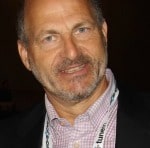 2. David Kantor
2. David Kantor
CEO Reach Media & Radio One’s
Radio Group
Radio One CEO Alfred Liggins tells Radio Ink, “David is a true radio vet, and I feel privileged to have him running our syndicated and local broadcast businesses. His business chops, talent management, and deal-creation skills are unparalleled and clearly worthy of this recognition.”
Every day is unpredictable in the radio industry, says the man in charge of both Radio One’s radio stations and Reach Media. Kantor says, “More so now than any time I’ve ever seen, you need to go to work every day and be ready to go into battle side by side with your people. It’s important that you celebrate their wins and share their challenges.”
Over many years, and with several companies, Kantor has been able to get people to work hard for him, and he says that comes from understanding what motivates people and tailoring his management to that. “No two people are motivated by the same variables,” he points out. “You have to get to know your people well and manage them based on what works for the individual. They have to know you are committed to their success and will work alongside them to achieve that success. You need to be fair, consistent, direct, and engaged. I never asked or expected anyone to do something that I wasn’t willing to do myself, or along with them. I try to learn from my mistakes so I don’t repeat them.”
Reach Media SVP/Marketing, Digital, Events & Communications Marty Raab says, “I’ve worked with David for over 20 years. His passion, and his vision for radio — and now digital and connected events — continues to be shared with those that work with him. Always incredible, leading with game-changing opportunities, and consistently delivering on the promise of spectacular content to our audience and users.”
Kantor is approaching 30 years in the radio business, having started out as a research manager for Cap Cities’ WJR-AM & FM in Detroit. His advice to others: “Ask a lot of questions. Not to second-guess your people, but to help make their decisions stronger. Once a decision is made, do everything you can to make it a successful one. As I’ve grown older, I’ve become much more empathetic. I try to put myself in other people’s shoes and not just focus on what’s important to me.”
 1. Mary Quass
1. Mary Quass
President & CEO
NRG Media
In 2015, when she won Radio Ink’s Most Influential Women in Radio Legend Award, Mary Quass said, “I believe in a bottom-up pyramid structure, and can tell you that I am the least important person at NRG Media. The magic really happens at the market level.” That statement helps define why Mary Quass was voted the number one leader in radio for 2017.
One of her general managers, Ami Graham, explains: “Mary’s ability to make people feel special and want to be an important member of her team is what really defines her as a great leader. She genuinely cares for every employee and always asks, ‘What help do you need from me?’ Mary inspires each of us to make positive differences in our communities and to set the professional standard. Because of her style of leadership, we want to win for her.”
And that’s really the definition of a great leader: developing a culture and inspiring people to want to win for you.
Also in that 2015 interview, Quass told Radio Ink one of her biggest successes was beating cancer — not because she’s alive, although that’s a plus, she said, but because she learned the importance of being able to share what is in her heart with others. “Having a brush with your own mortality makes you appreciate taking advantage of the moment, for you might never have that chance again. I was able to identify, for me, the reason we are here, and it was not about stuff, but the relationships we have with others. I think success for me is to be able to do what I love with people I admire, who together make a positive difference.”
NRG Omaha GM Andy Ruback says, “Mary is the ultimate supporter — it’s her ‘secret sauce.’ Have an idea, a challenge, a win; Mary’s support fuels confidence and success. It’s one of the key reasons NRG Media is a great place to work.” Quass says, “I believe that we work together on the path to success. I believe that if we can create an environment that is conducive for each of us to achieve our respective goals, then success is driven by achieving those goals.”
So what does it take to be a great leader in radio today, Mary Quass? “In today’s environment of dynamic change, we must look at the future through the lens of discovery, with a desire to focus on fundamentals of the change and what drives the ability to sustain that change.
“It takes a sense of curiosity, not fear, discovery, not discounting, and a fundamental belief in what has brought us to this place. To parallel what Dickens penned in the opening of ‘A Tale of Two Cities’: ‘It was the best of times, it was the worst of times’ — the same can be said for the radio industry. To me, leadership is the gift that is given to you by those who have deemed you worthy of their trust to chart the path to follow. I believe that good leaders focus on the things that can be controlled, have the courage to acknowledge those things that cannot be controlled, and have the determination to always set the path to the goal. And she is optimistic about the leadership we see in the radio industry today. “I believe that in times of great change, there is great opportunity for leaders to emerge,” she says. “Not necessarily the kind that hold senior positions, but leaders in the field who understand how to unlock the key to the deeper relationship radio and its many distribution platforms offer to what we used to call our ‘loyal listeners’ and are now our personas and social networks — a place where they can be among friends and have a ‘favorite radio station’ again. A leader who has the courage to try a new way, and the compassion to offer to show others the way, and a leader who has the ability to try and fail, and try again, many times.”
Quass tells Radio Ink that she’s been able to put herself in a position to lead people successfully because she’s had the opportunity to work with really creative people over the years, and because she learned early on that even a senior management title and position is just a name on the door and doesn’t make a leader. She says, “Leadership is given by those who trust you to lead. It is not mandated, it is earned. And if not earned, it is taken away.”
Her advice to future leaders? “Check your ego. This isn’t about being the lead dog. Look around — you see lots of people in positions of power who are mistakenly under the impression that the company is successful because of them. And while they may contribute, they are only as effective as those who have given them the power to lead.
And she is optimistic about the leadership we see I the radio industry today. “I believe that in times of grea change, there is great opportunity for leaders to emerge, she says. “Not necessarily the kind that hold senior positions, but leaders in the field who understand ho to unlock the key to the deeper relationship radio and it many distribution platforms offer to what we used to cal our ‘loyal listeners’ and are now our personas and social networks — a place where they can be among friends an have a ‘favorite radio station’ again. A leader who has th courage to try a new way, and the compassion to offer t show others the way, and a leader who has the ability to try and fail, and try again, many times.”





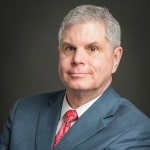
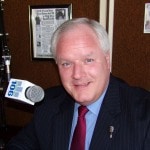
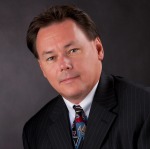



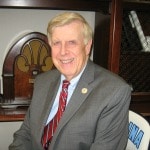
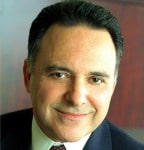
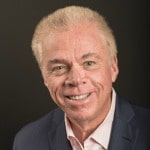
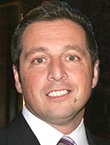



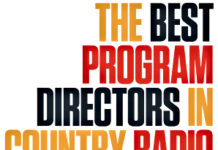




It would seem to me that the best radio management out there would be the ones who openly encourage and embrace new ideas. And not just in sales and promotions but also in programming. Yes! Programming! As in new format ideas. Too many radio companies never make any changes. If the rare occasion comes along that they do, it turns out to be just a little change. Or as they like to call it, a “tweak.” I hate “tweaks.” They’re boring. It means they dropped two songs from the playlist and either didn’t replace them or they replaced them with two “softer songs.” WOW! How many meetings were held to come up with that idea? Good management always keeps their ears open. They are not afraid of the words “new” and “different.”
So we have a couple of people from Alpha, who are running their company into the ground with razor thin budgets and horrific programming decisions (basically, the only people who are happy at Alpha are Hubbard employees Brooke and Jubal). Then we have a former board-op/producer at WFAN programming CBS (if Entercom has any judgement he will be shown the door) and the owner of Curtis Media, which has virtually no digital presence online and leads by showing people the door when they overpay for radio stations.
Great list. No wonder we are screwed.